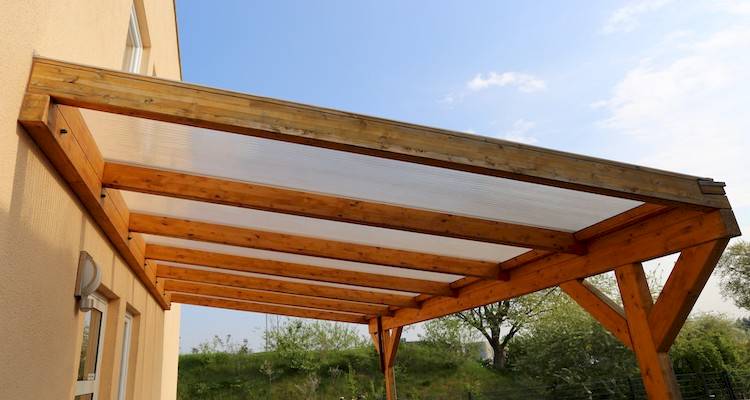EICR Certificate Cost (2025)
- The average EICR certificate costs around £120 to get for an average-sized home in the UK.
- An electrician will typically take between 2 and 4 hours to complete this job.
In this guide, you'll find the following:
- What an electrical safety check involves in the UK, how long an EICR lasts, and when you might need to get one.
- A complete breakdown of all the costs which you might incur when getting an EICR report.
- How to find and hire a qualified electrician to perform the test and issue the certificate.
Looking to learn about the cost of an electric safety certificate?
An electrical safety certificate is an electrical report that homeowners might get for their peace of mind, but it's also valuable if you're considering putting your house on the market — as it confirms your home's electricals are working as they should be.
However, it's a legal requirement for landlords in the UK to regularly get the electricals in their rental properties inspected and tested. If landlords aren't compliant with these rules, then they can be fined up to £30,000.
In either case, the price of an Electrical Installation Condition Report (EICR) is affordable. Although it depends on a few key things, you should expect to pay about around £120 for an EICR in the UK.
Are you ready for a quote for your job?
We have a whole range of local electricians ready to offer you a free quote. MyJobQuote is fast and hassle-free, connecting you with professionals in your area in a matter of minutes.
Or would you like to find out more?
This guide covers everything you might need to know about the costs of an EICR certificate (including what impacts the price), more about why you might need an EICR, what's involved in EICR testing, FAQs, and more.
Let's get started!

£120
Table of Contents
- How Much Does an Electrical Safety Certificate Cost?
- Who Needs To Get an EICR Report?
- What Does an Electricity Safety Check Involve?
- DIY Electrical Safety Certificates
- Types of Electrical Safety Certificates
- PAT Testing Cost
- What Other Safety Features Can Electricians Install?
- Checklist: Hiring an Electrical Safety Certificate Provider
- FAQs
- Sources
How Much Does an Electrical Safety Certificate Cost?
For an average-sized home, the cost of acquiring an Electrical Safety Certificate in the UK is typically between £80 and £150.
The price is heavily dependent on the electrician's cost per hour. This means that the EICR cost for a 3 bedroom house will be more expensive than a 1 bedroom house - just because there's more for them to test.
The cost of an EICR report tends to include an electrician's time, the testing of all electrical points, sockets, fixings, appliances and consumer units (e.g. fuse boards). There should not be any additional charges for providing a written summary - as this is part of the report.
It is always advisable to clarify what's included when getting a fixed-cost quote from anyone.
I have a 2 bed house with 1 fuse box which has 9 fuses. What would be the cost of a certificate please as I am selling my house and this has come up and I may need to purchase a certificate.
Electrical Safety Certificate Prices
The table below provides an average cost range that you should expect an electrician to charge for an EICR report, depending on the approximate size of the property.
These are estimated prices based on a typical home. If you think your house is a bit unique, then you might find be quoted a higher or lower EICR cost than this.
| Property Size | Cost of EICR Testing |
|---|---|
| 1 Bedroom House | £80 – £100 |
| 2 – 3 Bedroom House | £120 – £150 |
| 4 – 5 Bedroom House | £160 – £200 |
| 6+ Bedroom House | £220 – £250 |
Labour Costs and Timescales
An electrician usually charges around £200 per day.
You'll typically find that the electrical inspection cost you're quoted includes the electrician's cost-per-hour rate - but it's always good to check that.
Generally, an electrical safety check will take between 2 to 4 hours. But how long it takes to do an EICR test and issue a certificate depends on how large the property is and if there are any complications along the way.
But unless you're looking to get an EICR test conducted on a particularly large property or have an unusually complex electrical circuit board, the electrician you hire should normally complete the job within one day or less.
Who Needs To Get an EICR Report?
The Electrical Safety report will identify any hazards or concerns with the status of all electrical circuits and appliances.
It is not currently a legal requirement for homeowners. However, landlords in the UK are obliged to have consistent EICR tests performed in a property they're renting out and keep an up-to-date Electrical Certificate.
Tenanted properties should be regularly inspected, having an electrical safety report carried out at least once every five years. These reports are also commonly carried out upon re-wiring.
When hiring a certified tradesperson to carry out an Electrical Safety report, they will inspect all electrical circuits on the property.
Only certified electricians can legally issue an Electrical Safety Certificate, which documents that all electrical appliances and connectors within a property are in safe working condition.
The UK government are trying to stress the importance of ensuring the safety of others and educate people of the preventative value of PAT, (Portable Appliance Testing) and electrical products in all homes.
Does a landlord in Wales need any electrical safety certificates for multiple occupancy properties or otherwise?
What Does an Electricity Safety Check Involve?
Getting an Electrical Safety Certificate is simple, and the process generally takes no more than 2 to 4 hours to complete. Your electrician will visit your property first to provide you with a price quotation.
Once you are satisfied with the price, you will need to schedule a time and date for your Electrical Safety report testing to be carried out. Consider the fact that you may need to take a few hours off work to allow your electrician access to your property.
You are not always required to be there while your electrician is conducting the EICR test. However, you should consider that it might possibly affect your working hours.
The electrician will inspect and test all plug sockets, light fittings and electrical appliances to check whether they are in full working order. During the inspection, your electrician will identify any potential safety risks - such as faulty appliances, improper electrical connections and overloaded extension outlets.

A competent electrician will establish whether there are any faults within the bonding of circuits and check if existing appliances are of a high enough standard for appropriate servicing. The electrician will also examine fire alarms and test them for the appropriate level of safety.
Your electrician may ask you a few questions before they take on the job.
This might include:
- When was the last EICR test performed?
- How many appliances have been PAT tested?
- What work has been carried out since the last EICR test? (It's helpful if you have any service reports.)
Following an inspection of your entire property, your electrician will conclude their findings and construct a written report or document that is classed as the Electrical Safety Certificate. This report will outline the condition of your electrical appliances, along with any advisories for work that needs to be carried out.
What are the requirements for electrical safety in a rental property?
DIY Electrical Safety Certificates
By UK law, the only person who can carry out and issue an Electrical Safety Certificate is a certified electrician. However, this does not mean that there are no steps you can take yourself to ensure and protect the quality and safety of your property.
By regularly monitoring your property's electrical components and switchboards, you will reduce the likelihood of a hazard occurring.
Another way you can maintain a safe practice of electrical equipment is by investing in quality, energy-efficient white goods and other appliances.
It is not illegal to carry out electrical work yourself if you feel capable. However, you must recognise that in order to acquire a legal Electrical Safety Certificate, all electrical work must be inspected and signed off by a licenced electrician.
Most electricians will not be willing to sign off another person’s work for risk of liability and reputation.
Types of Electrical Safety Certificates
There are four kinds of Electrical Safety Reports or Certificates:
- Minor Electrical Works Installation Certificates
- Electrical Installation Certificates
- Electrical Installation Condition Reports
- Part P Notification Reports
Electrical Installation Certificates can only be issued by a licenced electrician and states that the installations carried out are in a safe, working order. Major electrical installations, including consumer unit installation, require an Electrical Installation Certificate.
Minor Electrical Certificates are similar to Electrical Installation Certificates. However, they differ in the extent of the work carried out.
As the name suggests, minor electrical installation certificates are issued for smaller installations. For example, this might include the addition of plug sockets and light switches in domestic dwellings.
On average, the cost of a minor electrical installation certificate in the UK starts at around £60.

In general, the two most common kinds of domestic electrical reports are carried out on electrical installations and electrical conditions. Landlords should always acquire a Landlord's Electrical Safety Certificate, as they are legally responsible for the safety of their tenants and the condition of all electrical circuits within the property.
Part P Notification is a building regulation that is in place to ensure the safety of homeowners and tenants. The regulation states that notification should be given, along with full plans to a building control body of any upcoming additions of one or more electrical circuits in dwellings and associated buildings.
In some cases, the submission of change to a building control authority may result in incurring building control fees.
These Part P charges will vary, depending on your local council. However, notification costs are estimated to range between £250 and £400, depending on the complexity of the electrical work.
However, not all electrical work needs to be submitted. It's always worth checking to see whether the work you are about to pursue will need to be approved or submitted to your local building control authorities.
Licenced electricians who are part of a qualifying self-certification scheme or Part-P scheme can self-certify their work. This means that the local building regulations authorities will not need to be notified of electrical work carried out by this tradesperson.
PAT Testing Cost
PAT testing (portable appliance testing) is a process where electrical appliances are examined to ensure safety. It’s typically required for businesses and landlords to establish the safety of any used appliances.

Only registered electricians can’t carry out portable appliance testing, and once it’s completed, you’ll receive the following:
- A collection of assessment findings for each appliance tested
- A record comprising each appliance’s name, type, description and location
- An inventory of all failed appliances with an account of why they failed
- An observable pass or fail sticker on each appliance specifying the inspection date, when the next test is due and the examiner’s signature
PAT testing costs (on average) a minimum of £30 to £60. This fee will cover the first 15 to 30 items. If there are additional items that go over the agreed amount, then you will normally be charged for each item individually (typically between £0.75 and £2 per appliance).
Do holiday let electricals need PAT testing? Should plug in electricals, like microwaves and lamps in holiday lets, be PAT tested?
What Other Safety Features Can Electricians Install?
If you're having your property checked for electrical efficiency, it can be a good idea to add some more safety features to your home while your electrician is on-site. This can save you from multiple call-out fees, while ensuring your property is as well protected as it can be.
Fire Alarm Costs
Every property should have fire alarms installed, and electric fire alarms with battery back-ups are a good way of safeguarding your property even in the event of a power cut.
The cost to install a fire alarm is around £100, taking between 1 to 2 hours to fit, depending on the type of alarm you choose and the ease of access.
Home Security Costs
There are so many home security products on the market - from doorbells to motion-activated lights and CCTV systems.
An electrician can fit any number of these for you, with the cost to install CCTV starting at £350 depending on camera type and how many you want installed.
Security lights cost £80 to £180 for floodlights, and between £90 to £500 for outdoor lights with motion sensors.
If you want an alarm to protect your property, the cost to install a burglar alarm is typically £450, with higher prices for alarms with live playback and relay options.
Smart Home Costs
Controlling your home's lights remotely helps to give the illusion of someone being home even when they're not, helping to deter unwanted intruders.
The cost to install smart home lighting ranges from £60 to £150 for a smart home hub, £65 to £110 for motion sensor lights, and the cost to set up your entire property with smart features starts at £3,200.
Checklist: Hiring an Electrical Safety Certificate Provider
Before you hire someone to carry out an Electrical Safety report at your property, there are a few things to consider first. Below is an easy step-by-step guide for you to follow when seeking a professional to carry out the service.
- Shop around. Do not jump into hiring the first person or business that gives you a quote. Even if the price is cheap, you should always compare alternative options.
- Check that your electrician is authorised to issue an Electrical Safety Report. They will likely be, however, you should always research anyone who is working on your property.
- Get a written agreement in place for the work that is to be carried out. This gives you a clear outline of what services are included in the charge.
- Always check if your tradesperson is adequately insured for any unexpected incidents or damage to your home.
- Get a written receipt or confirmation after making any payment for the EICR certificate. This protects you in case of any disputes.
FAQs
Do I Need an Electrical Safety Certificate To Sell My Property?
What Is NICEIC?
As a Landlord, What Electrical Safety Certificates Do I Need?
What Is a Consumer Unit?
My Electricity Is Not Safe, and My Landlord Will Not Help. What Can I Do?
Can a Landlord Be Fined for No EICR?
How Long Is an EICR Valid For?
How Much Does a Commercial EICR Cost?
Sources
https://www.gov.uk/government/publications/electrical-safety-standards-in-the-private-rented-sector-guidance-for-landlords-tenants-and-local-authorities/guide-for-landlords-electrical-safety-standards-in-the-private-rented-sector
https://www.gov.uk/government/publications/electrical-safety-standards-in-the-private-rented-sector-guidance-for-landlords-tenants-and-local-authorities/guide-for-tenants-electrical-safety-standards-in-the-private-rented-sector
https://www.electricalsafetyfirst.org.uk/find-an-electrician/building-regulations/england/
https://www.electricalsafetyfirst.org.uk/guidance/your-questions-answered/questions/is-it-a-legal-requirement-to-have-an-eicr-carried-out-in-order-to-sell-my-house/
https://niceic.com/householders/
https://www.nrla.org.uk/resources/looking-after-your-property/electrical-safety-inspections









